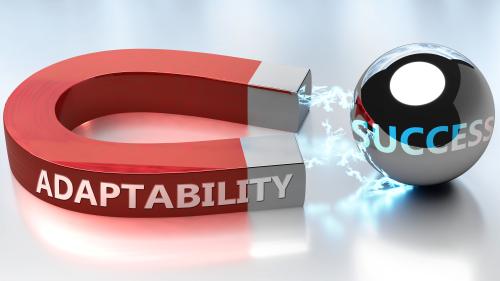
Recently, TEDCO spent some time looking back at FY 2024 and, while our economic impact continues to be significant and trend in a very positive trajectory, we want to do more to help our company founders. Programmatically, we are tying together our investment programs with the ecosystem and TEDCO programs are providing more access and visibility into programs that are designed to educate, support and accelerate the growth of Maryland’s early-stage technology companies. But one thing is missing that we need help with – we need to know when things are not going according to plan.
The boxer Mike Tyson famously said, “everyone has a plan until they get punched in the face.” In a similar vein, Steve Blank said that business plans rarely make it past their first customer interaction. These two individuals highlight was seasoned entrepreneurs understand – a plan is just that, a plan, it will need to be constantly tweaked and modified. Likewise, a seasoned investor knows that plans are only plans and, while investors emphasize the use of funds and plans for next steps, we also know, and expect, that plans will change. Just as John Maynard Keynes is credited with saying “when the facts change, I change my mind.”
We welcome these discussions with our portfolio companies. In fact, founders who proactively reach out to us to discuss how plans have changed and what the new plan looks like are found climbing the quality company list and increasing their chances of getting initial or follow-on funding. When I was working for my very first startup software company, one of our investors said, “tell me about when things went wrong.” I was confused by this question but came to realize that what she was asking for – how did we, as a team, overcome adversity? Afterall, a true test of one’s metal is when things are going south; one changes their plan of attack when they are out of money and down to the last credit card that was used to pay for gas to make a ‘must win’ sales call with a key customer (that was me, 20 years ago).
Annie Duke has a great book, Thinking in Bets, which dissects decision-making for an investor. A key takeaway for me was the team needs processes. These processes need to be used to support the cycle of making decisions, analyzing decisions, and revising your process to adjust to changes and better fit the team’s needs.
As the book highlights, one of the worst things that can happen to investors like TEDCO is making an investment without a process (or plan) and win. This leads many investment funds into a spiral of thinking they are making good decisions without a process and when things start going bad, there is no way to try to tweak things and improve the process. Everyone has a plan, but life happens, and when things change, we must adapt. The point here, is talk with your collaborators, investors, advisors to come up with the new strategy.
Everyone experiences situations where we need a different perspective on challenges that face us, but we cannot help each other if we don’t communicate and collaborate with each other. Thankfully, TEDCO is uniquely positioned to not only make investments in technology companies, but also help the founders build the company. With resources, connections, and information about other opportunities, we are uniquely positioned to support Maryland’s diverse ecosystem, but we cannot help each other if we don’t know if there is a problem. This is why collaboration, both internally with 1TEDCO and externally with the ecosystem, is essential to everything we do.
I can also guarantee you this, we would not force a company into a bad situation because the founder shared some unplanned material issue that they are facing. On the contrary, TEDCO has a dual mandate of economic development and financial returns with the emphasis on economic development. We are committed to company and job growth and have resources to help with that, not just make investments.
So, talk to us; let us know what is going on, what problems you’re facing, and any proposed solutions you have. Minimally we can be a sounding board, but it’s more likely we can help navigate challenges that can feel unsolvable. We are all in this together!